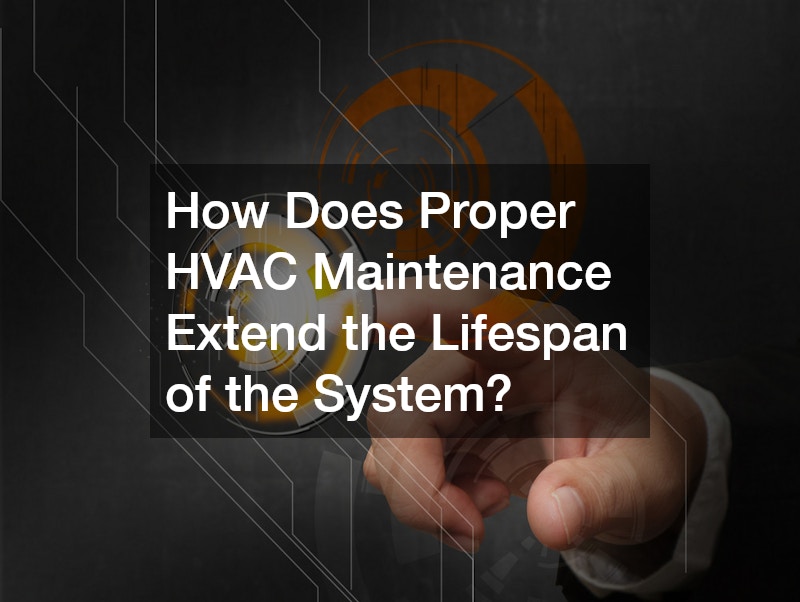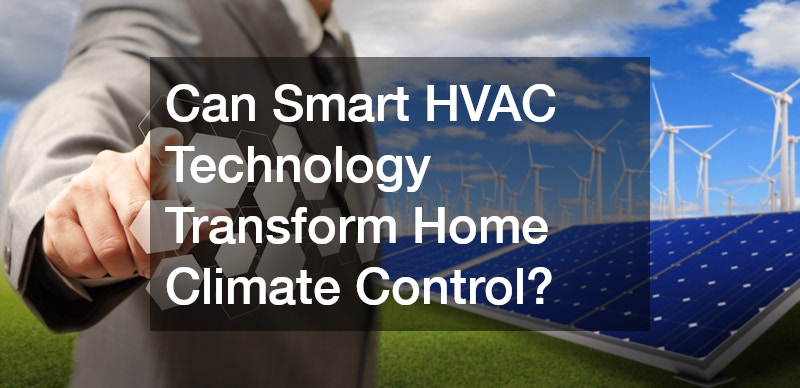In today’s world, maintaining a comfortable and healthy home environment is pivotal, and HVAC (Heating, Ventilation, and Air Conditioning) systems play a crucial role in achieving this goal. In this article, we will explore the significance of heating and air conditioning services by addressing frequently asked questions related to their applications and benefits. Understanding these HVAC applications is essential for making informed decisions about your home’s climate control and comfort.
1. What Are the Primary Functions of an HVAC System?

The primary functions of an HVAC system include heating, ventilation, and air conditioning, which are vital for a comfortable living environment. These core functions ensure that homes remain warm during winter, cool in the summer, and adequately ventilated to maintain air quality throughout the year. HVAC applications like these make it easier for residents to enjoy a stable and comfortable indoor environment regardless of external weather conditions.
Heating systems are integral components of HVAC systems, especially in colder climates. They work by generating heat through various methods, such as combustion or electrical resistance, and distributing it throughout the home. Properly designed heating systems, often installed by HVAC companies or home builders, ensure that all rooms maintain a consistent temperature which is crucial for comfort and health.
Ventilation, another critical HVAC application, involves the exchange of indoor and outdoor air to improve air quality. An effective ventilation system reduces pollutants, odors, and moisture, all of which can impact health. Ventilation strategies are especially important in energy-efficient homes where airtight construction can limit natural airflow.
2. How Does an HVAC System Improve Indoor Air Quality?
HVAC systems improve indoor air quality by efficiently filtering and circulating air throughout a home. This HVAC application involves removing dust, allergens, and other particulate matter that can degrade air quality. With the assistance of professional HVAC service, homeowners can ensure their systems are equipped with high-quality filters that capture more airborne contaminants.
Advanced air conditioning repair services and regular maintenance can further enhance air purification by cleaning ducts and ensuring all components are functioning correctly. Homeowners often turn to HVAC companies to implement systems with enhanced filtration technologies or to install new units that feature specialized air purification capabilities. These efforts not only improve air quality but also support the health and well-being of the home’s occupants.
Additionally, modern HVAC systems are designed to control humidity levels effectively, which further contributes to better indoor air quality. Excess moisture can lead to mold growth and the proliferation of allergens; hence, proper HVAC application can keep humidity in check. Regular HVAC service checks can prevent issues that might compromise system efficiency, ensuring a healthy indoor environment year-round.
3. What Role Does an HVAC System Play in Home Energy Efficiency?
Modern HVAC systems are designed to enhance home energy efficiency significantly, helping to reduce utility costs while maintaining comfort. Through advanced technology and smart controls, these systems can optimize energy use by adjusting heating and cooling levels to match real-time needs. HVAC applications such as programmable thermostats allow homeowners to manage energy consumption more effectively, reducing waste.
Energy-efficient HVAC systems can be a significant investment but, over time, they offer substantial economic returns by decreasing monthly energy bills. HVAC companies often provide insights into high-efficiency units and can guide homeowners through options that best fit their budget and needs. Loans or financing packages through home renovation contractor partnerships can make these technologies more accessible, encouraging more homeowners to upgrade.
Moreover, integrating newer HVAC systems during a home build or design build service ensures modern energy standards are met. These systems can be tailored to the specific needs of the home, taking into account factors like square footage, climate, and exposure to the sun. Such customized HVAC applications ensure that the system operates at peak efficiency, optimizing energy use over its lifespan.
4. Can HVAC Systems Help Regulate Humidity Levels?

HVAC systems play a crucial role in regulating indoor humidity levels, which is essential for comfort and health. They are designed to remove excess moisture from the air during the cooling process, preventing problems such as mold growth and structural damage. Proper humidity regulation is a key HVAC application that enhances indoor air quality, contributing to healthier living conditions.
By maintaining optimal humidity levels, HVAC systems help protect your home’s materials and finishes, preserving floors, walls, and furnishings. This regulation can also improve personal comfort, as improper humidity levels can cause respiratory discomfort or irritate allergies. Through routine HVAC service, homeowners can ensure that their systems are functioning correctly to maintain these essential humidity controls.
Additionally, many modern HVAC systems include advanced humidity sensors and controls. These features enable smarter HVAC applications that adjust operations automatically to respond to changes in moisture levels within the home. Home builders and renovation contractors can incorporate these systems into new projects, providing a comprehensive solution that benefits long-term home comfort and health.
5. How Do HVAC Systems Contribute to a Comfortable Living Environment?
HVAC systems are fundamental to creating a comfortable living environment, as they manage both temperature and airflow within a home. They respond to climate demands by keeping interiors warm in cold seasons and cool during warmer months, creating a stable and pleasant living space. This stability is one of the most appreciated HVAC applications, ensuring comfort is maintained year-round.
The precise temperature control available with modern HVAC systems allows homes to be heated or cooled to exact preferences, offering an enhanced quality of life for occupants. With the help of ac services and air conditioning repair professionals, systems can be customized or upgraded to adapt to changing comfort needs, broadening personal comfort levels further. Smart HVAC services now allow advanced climate control options that fit all lifestyles and preferences.
Beyond temperature management, HVAC systems also enhance comfort through effective noise reduction strategies. Systems are engineered to operate quietly, minimizing disruptions within the home. This attention to acoustics ensures that comfort isn’t compromised by operational noise, further highlighting the thoughtful design behind advanced HVAC applications.
6. What Are the Economic Benefits of Installing a High-Efficiency HVAC System?
Installing a high-efficiency HVAC system can result in substantial economic benefits over the lifespan of the unit. These systems consume less energy than older models, leading to lower utility bills, a critical factor for many homeowners considering HVAC applications. The upfront cost of a high-efficiency system is often offset by the savings in energy costs over time.
Many homeowners find that upgrading to a high-efficiency system increases their home’s value, as these systems are attractive to potential buyers for their cost-saving advantages. Enhanced system performance, reliability, and the aforementioned financial savings collectively contribute to a strong return on investment. Home renovation contractors often recommend high-efficiency systems for this reason, alongside available government incentives that can further reduce costs.
In addition to direct savings, a well-installed high-efficiency HVAC system reduces the likelihood of costly repairs and prolongs the equipment’s lifespan. Regular HVAC service, performed by skilled professionals, ensures optimal performance and energy efficiency is maintained throughout the unit’s life. This combination of decreased operational costs and increased home value underscores the economic benefits of advanced HVAC applications.
7. How Does Proper HVAC Maintenance Extend the Lifespan of the System?

Regular and proper HVAC maintenance is essential for extending the lifespan and enhancing the performance of the system. Scheduled maintenance practices, such as cleaning filters and inspecting ductwork, prevent minor issues from escalating into major repairs. This aspect of HVAC applications ensures that systems operate efficiently and reliably through years of use.
Regular HVAC service checks performed by experienced HVAC companies can help identify and resolve potential issues before they impact system functionality. Through professional inspections, homeowners can avoid unexpected breakdowns and costly repairs, which can compromise home comfort. Investing in a maintenance plan with reputable HVAC companies guarantees consistent service and longevity of the HVAC system.
Moreover, routine maintenance supports the system’s efficiency, allowing it to operate with reduced energy consumption and emissions. This efficiency reduces environmental impact and helps maintain stable utility costs, aligning with sustainable living practices. Ensuring your HVAC system is well-maintained through regular service is a key part of responsible HVAC applications and home management.
8. In What Ways Do HVAC Systems Affect the Resale Value of a Home?
A well-maintained HVAC system can significantly enhance the resale value of a home by ensuring comfort and efficiency for future buyers. Real estate markets recognize that homes with modern HVAC systems are more appealing due to their advanced features and efficiency. As part of comprehensive HVAC applications, an upgraded or well-serviced unit reassures prospective buyers about energy costs and system reliability.
Home buyers often prioritize properties with updated or high-efficiency HVAC systems to avoid the expense and hassle of immediate replacements. Thus, investing in these upgrades can help your home stand out in a competitive market and may lead to quicker sales at asking price. This impact is significant, particularly for home builders or sellers working with design build services who aim to optimize property value.
Potential buyers appreciate HVAC systems that offer eco-friendly benefits, further driving demand due to increased awareness of sustainability. An efficient system presents an opportunity for reduced long-term energy expenditures and improved indoor quality, factors that positively influence a home’s marketability. Therefore, strategic HVAC applications in home planning or renovations can be advantageous for homeowners looking to sell.
9. What Are the Environmental Impacts of HVAC Systems?
HVAC systems can have considerable environmental impacts, making it crucial to choose efficient technologies and practices. Older systems often consume more energy, contributing to higher carbon emissions and resource depletion. However, modern HVAC applications focus on reducing energy use and utilizing eco-friendly technologies to mitigate environmental impact.
A transition to high-efficiency HVAC systems can significantly reduce household carbon footprints, aligning with broader environmental goals. Many systems now incorporate renewable energy options and refrigerants with lower greenhouse gas potential, advancing sustainable building practices. Home renovation contractors often recommend integrating such systems to reduce negative environmental effects.
The commitment to maintaining an energy-efficient HVAC system can also extend to the regular replacement of air filters and proper disposal of components. By engaging HVAC service providers who emphasize sustainability, homeowners contribute positively to environmental conservation. Collective movements towards green HVAC applications offer pathways to minimizing ecological impact while maximizing home comfort.
10. Can Smart HVAC Technology Transform Home Climate Control?

Smart HVAC technology has revolutionized home climate control by providing unprecedented levels of convenience and efficiency. These technologies allow homeowners to customize temperature settings remotely via smartphones or voice-controlled devices, representing a significant leap in HVAC applications. Smart systems anticipate home cooling or heating needs, optimizing performance and energy consumption.
Integrating smart technology in HVAC systems enables predictive maintenance, which alerts homeowners to maintenance needs before failures occur. This capability ensures consistent operation and reduces the instances of unexpected service calls, extending the system’s life. These smart systems often collaborate with ac services to report operational issues, allowing timely air conditioning repair when necessary.
The adaptability of smart HVAC systems also provides comfort tailored to unique home dynamics, such as varying occupancy and usage patterns. Home builders and those engaged in a design-build service find these HVAC applications advantageous in accommodating modern living requirements. Consequently, smart HVAC technologies represent the future of home climate control, redefining efficiency and comfort standards.
Comprehensively understanding the role of HVAC systems in residential environments underscores their essential nature. These systems play a pivotal role in modern homes, offering numerous benefits that go beyond basic temperature regulation. From improving indoor air quality by filtering out allergens and pollutants to enhancing energy efficiency and ensuring year-round comfort, HVAC systems are indispensable for healthy and sustainable living. Regular maintenance, combined with the adoption of energy-efficient models and smart technologies, can significantly reduce utility costs while minimizing environmental impact. By addressing common concerns such as system lifespan, energy consumption, and performance reliability, and exploring innovative HVAC applications like smart thermostats and zoned heating, homeowners can make informed decisions about their heating, ventilation, and air conditioning needs. This holistic approach ensures a safer, healthier, and more cost-effective living environment.